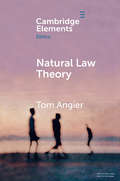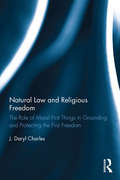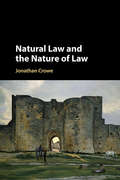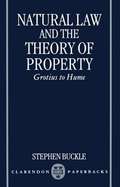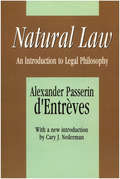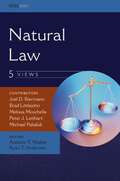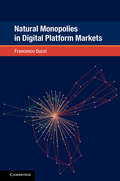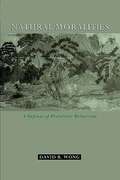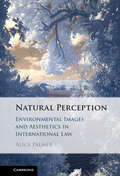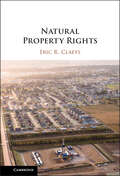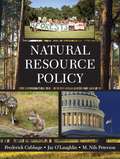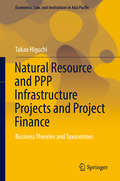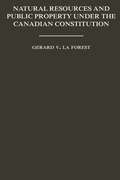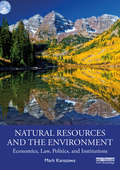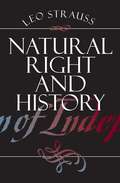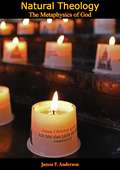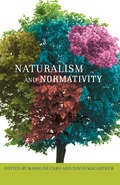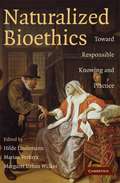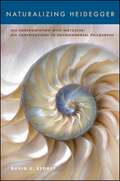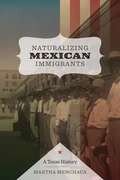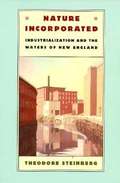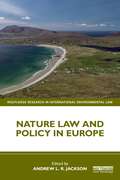- Table View
- List View
Natural Law Theory (Elements in Ethics)
by Tom AngierIn Section 1, I outline the history of natural law theory, covering Plato, Aristotle, the Stoics and Aquinas. In Section 2, I explore two alternative traditions of natural law, and explain why these constitute rivals to the Aristotelian tradition. In Section 3, I go on to elaborate a via negativa along which natural law norms can be discovered. On this basis, I unpack what I call three 'experiments in being', each of which illustrates the cogency of this method. In Section 4, I investigate and rebut two seminal challenges to natural law methodology, namely, the fact/value distinction in metaethics and Darwinian evolutionary biology. In Section 5, I then outline and criticise the 'new' natural law theory, which is an attempt to revise natural law thought in light of the two challenges above. I conclude, in Section 6, with a summary and some reflections on the prospects for natural law theory.
Natural Law and Religious Freedom: The Role of Moral First Things in Grounding and Protecting the First Freedom
by J. Daryl CharlesEvery successive generation finds fresh reasons for the study of natural law. Current interest in the natural law may well be due to a pervasive moral pessimism in the Western cultural context and wider contemporary geopolitical challenges. Those geopolitical challenges result from two significant and worrisome global developments – unprecedented violent persecution of religious minorities on several continents and a growing climate of secular hostility toward religious faith in Western societies. Natural Law and Religious Freedom aims to address what is relatively absent from the literature by demonstrating the importance of natural law ethics in both establishing and preserving basic human rights, of which religious freedom has pride of place. Probing contemporary challenges to natural law thinking that are both internal and external to religious faith, and examining the character and constitution of natural law ethics, Natural Law and Religious Freedom will be of interest to theologians, ethicists and philosophers as well as policy analysts, politicians and activists who are concerned to anchor religious freedom and human rights policy considerations in an enduring way.
Natural Law and the Nature of Law
by Jonathan CroweThis book provides the first systematic, book-length defence of natural law ideas in ethics, politics and jurisprudence since John Finnis's influential Natural Law and Natural Rights. Incorporating insights from recent work in ethical, legal and social theory, it presents a robust and original account of the natural law tradition, challenging common perceptions of natural law as a set of timeless standards imposed on humans from above. Natural law, Jonathan Crowe argues, is objective and normative, but nonetheless historically extended, socially embodied and dependent on contingent facts about human nature. It reflects the ongoing human quest to work out how best to live flourishing lives, given the natures we have and the social environments we inhabit. The nature and purpose of law can only be adequately understood within this wider context of value. Timely, wide-ranging and clearly written, this volume will appeal to those working in law, philosophy and religious studies.
Natural Law and the Theory of Property: Grotius to Hume
by Stephen BuckleIn this book, Stephen Buckle provides a historical perspective on the political philosophies of Locke and Hume, arguing that there are continuities in the development of seventeenth- and eighteenth-century political theory which have often gone unrecognized. He begins with a detailed exposition of Grotius's and Pufendorf's modern natural law theory, focusing on their accounts of the nature of natural law, human sociability, the development of forms of property, and the question of slavery. He then shows that Locke's political theory takes up and develops these basic themes of natural law. Buckle argues further that, rather than being a departure from this tradition, the moral sense theory of Hutcheson and Hume represents an attempt--which is not entirely successful--to underpin the natural law theory with an adequate moral psychology.
Natural Law in Court
by R. H. HelmholzNatural-law theory grounds human laws in universal truths of God's creation. The task of the judicial system was to build an edifice of positive law on natural law's foundations. R. H. Helmholz shows how lawyers and judges made and interpreted natural law arguments in the West, and concludes that historically it has advanced the cause of justice.
Natural Law in Jurisprudence and Politics
by Mark C. MurphyNatural law is a perennial though poorly represented and understood issue in political philosophy and the philosophy of law. In this 2006 book, Mark C. Murphy argues that the central thesis of natural law jurisprudence - that law is backed by decisive reasons for compliance - sets the agenda for natural law political philosophy, demonstrating how law gains its binding force by way of the common good of the political community. Murphy's work ranges over the central questions of natural law jurisprudence and political philosophy, including the formulation and defense of the natural law jurisprudential thesis, the nature of the common good, the connection between the promotion of the common good and requirement of obedience to law, and the justification of punishment.
Natural Law: An Introduction to Legal Philosophy
by Alexander Passerin d'EntrevesThis is the classic study of the history and continuing philosophical values of the law of nature. D'Entreves discerned three distinct sources that have contributed to the development of natural law: Roman law teachings, Christian beliefs regarding law, and egalitarian and revolutionary theories of the Enlightenment. Now regarded as a classic work, Natural Law has exercised considerable influence over the course of Anglo-American legal theory in the past forty years. The statements of Clarence Thomas during his 1991 Senate confirmation hearings show that the law of nature still holds powerful appeal in defining judicial rules.In the new introduction, Cary J. Nederman points out both the contemporary value and the historical significance of Natural Law. He also provides the biographical as well as intellectual context for d'Entreves immense accomplishments. This volume is essential reading for students of legal history, political theory, and philosophy. It will also be of interest to historians.Few texts provide as concise or as cogent an introduction to natural theory as Alexander Passerin d'Entreves' Natural Law: An Introduction to Legal Philosophy.... Transaction Publishers has performed a genuine service by bringing out a new edition of Natural Law. D'Entreves' analysis is clear and penetrating, and will guide the student of natural law to further, fruitful study.—Mitchell Muncy, The University Bookman
Natural Law: Five Views (CriticalPoints Series)
by ZondervanThe story of "natural law" - the idea that God has written a law on the human heart so that ethical norms derive from human nature - in twentieth-century Protestant ethics is one of rejection and resurgence. For half a century, luminaries like Karl Barth, Carl F. H. Henry, and Cornelius Van Til cast a shadow over natural law moral reflection because of its putative link to natural theology, autonomous reason, associations with Catholic theology, and ethical witness devoid of special revelation. However, over the past twenty years, Protestant theologians have renewed their interest in the subject, often animated by debates on Christian involvement in the public arena and on matters of life, death, and gender and sexuality. Much of this engagement has happened within Reformed circles and has largely been conducted without reference to Roman Catholic construals of the natural law. Conversely, Catholic developments in natural law thinking have paid little attention to the surge of interest on the Protestant side. As a result, Protestant and Catholic natural proponents - and even those skeptical of the natural law - are not in conversation with one another.The lack of dialog between the various schools of natural law has left a historic tradition within Christian moral thought underdeveloped in contemporary Protestant theology. By bringing together a variety of perspectives in much-needed conversation, this book helps readers to understand the various construals of natural law within the broader strands of Christian and classical traditions and clarifies its unique importance for Christian moral witness in a secular culture. The contributors address the following questions:What is natural law?Can moral norms be derived from immanent, creaturely ends? If so, how specific or action-guiding can those norms be? How extensive might these moral norms be?How does natural law endure despite Christian insistence on the noetic, epistemological effects of sin?What is the relationship between Christian reflection on natural law and the broader classical tradition's understanding of natural law?How do Catholic and Protestant construals of natural law differ?What is the relationship between faith and reason?What's the relationship between human nature and natural law?Does "natural law" mean: "secular moral reasons"? Or is "natural law" merely religious belief disguised as public reason?How does natural law relate to public reason?Does the affirmation of a "natural law" lead to a natural theology? Or are these distinct?What is the relationship between natural law and the laws of nature?Five views:Classical Natural Law - Michael PakalukNew Natural Law - Melissa MoschellaReformed Natural Law - W. Bradford LittlejohnLutheran Natural Law - Joel D. BiermanAnti-Natural Law - Peter J. Leithart
Natural Monopolies in Digital Platform Markets (Global Competition Law and Economics Policy)
by Francesco DucciCompetition policy debates on digital platform markets are often premised on the idea that market fragmentation and the standard forces of competition and entry may provide a potential solution to excessive concentration and market power. In this work, Francesco Ducci provides readers with a different perspective based on the theoretical lens of natural monopoly. Ducci explores this framework through the development of three case studies on horizontal search, e-commerce marketplaces, and ride-hailing platforms, investigating the strength and limit of potential (and often heterogeneous) sources of natural monopoly at play in each industry. Building on these case studies, the book then derives from the application of the natural monopoly framework general policy implications for digital industries by identifying the respective institutional flaws and shortcomings of ex ante and ex post approaches to market power as one of the central challenges in digital platform markets.
Natural Moralities: A Defense of Pluralistic Relativism
by David B. WongIn this book, David B. Wong defends an ambitious and important new version of moral relativism. He does not espouse the type of relativism that says anything goes, but he does start with a relativist stance against alternative theories such that there need not be only one universal truth. Wong proposes that there can be a plurality of true moralities existing across different traditions and cultures, all with one core human question as to how we can all live together.
Natural Perception: Environmental Images and Aesthetics in International Law
by Alice PalmerImages of nature abound in the practice of international environmental law but their significance in law is unclear. Drawing on visual jurisprudence, and interpretative methods for visual art, this book analyses photographs for their representations of nature's aesthetic value in treaty processes that concern world heritage, whales and biodiversity. It argues that visual images should be embraced in the prosaic practice of international law, particularly for treaties that demand judgements of nature's aesthetic value. This environmental value is in practice conflated with natural beauty, ethical and cultural values, and displaced by economic and scientific values. Interpretations of visual images can serve instead to critique and conceive sensory, imaginative and emotional appreciations of nature from different cultural perspectives as proposed by philosophers of environmental aesthetics. Addressing questions of value and the visual, this landmark book shows how images can be engaged by nations to better protect the environment under international law.
Natural Property Rights
by Eric R. ClaeysNatural Property Rights presents a novel theory of property based on individual, pre-political rights. The book argues that a just system of property protects people's rights to use resources and also orders those rights consistent with natural law and the public welfare. Drawing on influential property theorists such as Grotius, Locke, Blackstone, and early American statesmen and judges, as well as recent work in in normative and analytical philosophy, the book shows how natural rights guide political and legal reasoning about property law. It examines how natural rights justify the most familiar institutions in property, including public property, ownership, the system of estates and future interests, leases, servitudes, mortgages, police regulation, and eminent domain. Thought-provoking and comprehensive, the book challenges leading contemporary justifications for property and shows how property both secures individual freedom and serves the common good.
Natural Resource Policy
by M. Nils Peterson Frederick Cubbage Jay O'LaughlinNatural resource policies provide the foundation for sustainable resource use, management, and protection. Natural Resource Policy blends policy processes, history, institutions, and current events to analyze sustainable development of natural resources. The book's detailed coverage explores the market and political allocation and management of natural resources for human benefits, as well as their contributions for environmental services. Wise natural resource policies that promote sustainable development, not senseless exploitation, promise to improve our quality of life and the environment. Public or private policies may be used to manage natural resources. When private markets are inadequate due to public goods or market failure, many policy options, including regulations, education, incentives, government ownership, and hybrid public/private policy instruments may be crafted by policy makers. Whether a policy is intended to promote intensive management of natural resources to enhance sustained yield or to restore degraded conditions to a more socially desirable state, this comprehensive guide outlines the ways in which natural resource managers can use their technical skills within existing administrative and legal frameworks to implement or influence policy.
Natural Resource and PPP Infrastructure Projects and Project Finance: Business Theories and Taxonomies (Economics, Law, and Institutions in Asia Pacific)
by Takao HiguchiThis is one of the first books that comprehensively explains fundamental theories of natural resource and infrastructure public private partnership (NRI–PPP) projects and project finance.NRI–PPP projects and project finance have been adopted in natural resource development, including oilfield development, mine development, and liquefied natural gas production; manufacturing, such as petrochemistry, which uses crude oil; and infrastructure-related projects such as railways, roads, airports, ports, water supply, waste treatment, communications, and electricity.An important concern during negotiations among the various stakeholders is the lack of congruence between theories underlying NRI–PPP projects and project finance and the particular, real-life business considerations of the subject project and lack of understanding of the key theories. Studies that help us understand NRI–PPP projects and project finance have been developed based on economic theories such as contract theory and the economics of law by several distinguished professors. Until now, however, in financial institutions staff in departments that specialize in project finance have developed an understanding of the theories underlying NRI–PPP projects and project finance primarily through on-the-job training during which business points of view were passed on. Principles and theories regarding NRI–PPP projects and project finance have not been taught through textbooks in these firms. In fact, there are only a few books that explain the fundamental theories for actual project structures or actual project finance. This book attempts to fill that gap by making clear the fundamental theories that exist behind the actual projects and project finance in relation to natural resources and infrastructure. Readers of this book will include not only professionals in various private sectors and banks but also those involved in PPP projects in the public sector.
Natural Resources and Public Property Under the Canadian Constitution (The Royal Society of Canada Special Publications)
by Gerard La ForestThe controversy aroused by the Supreme Court's decision on offshore mineral rights emphsizes the importance of the public domain in the workings of the Canadian constitution. Public property is important to the provinces not only for its revenues, but also because it provides them with a powerful instrument for control of their economic and political destinies and strengthens their position in relation to federal authorities. The provisions of the British North America Act and other constitutional instruments relating to natural resources and public property are examined thoroughly in this series of lectures given to doctoral systems at the Faulte de droit of the Universite de Montreal. Professor La Forest studies ownership of mines and minerals, navigable waters, public harbours, fisheries and Indian lands, as well as the currently controversial offshore mineral rights. He notes the political imlications of the partition of proprietary rights and explores the areas of conflict between the federal and provincial governments. Also included is a discussion of the power of expropriation, and, because public property involves public monies, lending and spending powers receive attention.In these lectures, Professor La Forest traces public domain in Britain from the time when the monarch controlled all the land, to his surrender of this control to parliament in return for a civil list, and to the similar surrender to the legislatures of the British North American colonies in connection with the struggle of responsible government.The collection of lectures is essential reading for any serious student of the constitution and will be very useful to all who are interested in the increasingly important law of natural resources in Canada.
Natural Resources and the Environment: Economics, Law, Politics, and Institutions
by Mark KanazawaNatural Resources and the Environment: Economics, Law, Politics, and Institutions provides a new approach to the study of environmental and natural resource economics. It augments current contributions from the fields of public choice, law, and economics, and the burgeoning field of what used to be called the "New Institutional Economics," to describe, explain, and interpret how these new developments have been applied to better understand the economics of natural resources and the environment. This textbook takes a multi-disciplinary approach, which is essential for understanding complex environmental problems, and examines the issue from not only an economic perspective, but also taking into account law, politics, and institutions. In doing so, it provides students with a realistic understanding of how environmental policy is created and presents a comprehensive examination of real-world environmental policy. The book provides a comprehensive coverage of key issues, including renewable energy, climate change, agriculture, water resources, land conservation, and fisheries, with each chapter accompanied by learning resources, such as recommended further reading, discussion questions, and exercises. This textbook is essential reading for students and scholars seeking to build an interdisciplinary understanding of natural resources and the environment.
Natural Right and History
by Leo StraussIn this classic work, Leo Strauss examines the problem of natural right and argues that there is a firm foundation in reality for the distinction between right and wrong in ethics and politics. On the centenary of Strauss's birth, and the fiftieth anniversary of the Walgreen Lectures which spawned the work, Natural Right and History remains as controversial and essential as ever. "Strauss . . . makes a significant contribution towards an understanding of the intellectual crisis in which we find ourselves . . . [and] brings to his task an admirable scholarship and a brilliant, incisive mind. "—John H. Hallowell, American Political Science Review Leo Strauss (1899-1973) was the Robert Maynard Hutchins Distinguished Service Professor Emeritus in Political Science at the University of Chicago.
Natural Theology: The Metaphysics of God
by James F. AndersonIn this book my sole aim is to present clearly and succinctly for students some central arguments and truths about God in so far as He is known to us in the light of reason. This pedagogical purpose dictates a great deal of compression, lest the student be lost in a labyrinth of dialectical and historical discussion, however important that may be in itself. But compression need not mean oversimplification. It does mean condensing, abridging, epitomizing. This has been done deliberately, in the interest of the student.
Naturalism and Normativity (Columbia Themes in Philosophy)
by Mario De Caro David MacarthurNormativity concerns what we ought to think or do and the evaluations we make. For example, we say that we ought to think consistently, we ought to keep our promises, or that Mozart is a better composer than Salieri. Yet what philosophical moral can we draw from the apparent absence of normativity in the scientific image of the world? For scientific naturalists, the moral is that the normative must be reduced to the nonnormative, while for nonnaturalists, the moral is that there must be a transcendent realm of norms.Naturalism and Normativity engages with both sides of this debate. Essays explore philosophical options for understanding normativity in the space between scientific naturalism and Platonic supernaturalism. They articulate a liberal conception of philosophy that is neither reducible to the sciences nor completely independent of them-yet one that maintains the right to call itself naturalism. Contributors think in new ways about the relations among the scientific worldview, our experience of norms and values, and our movements in the space of reason. Detailed discussions include the relationship between philosophy and science, physicalism and ontological pluralism, the realm of the ordinary, objectivity and subjectivity, truth and justification, and the liberal naturalisms of Donald Davidson, John Dewey, John McDowell, and Ludwig Wittgenstein.
Naturalism and Realism in Kant’s Ethics
by Frederick RauscherIn this comprehensive assessment of Kant's metaethics, Frederick Rauscher shows that Kant is a moral idealist rather than a moral realist and argues that Kant's ethics does not require metaphysical commitments that go beyond nature. Rauscher frames the argument in the context of Kant's non-naturalistic philosophical method and the character of practical reason as action-oriented. Reason operates entirely within nature, and apparently non-natural claims - God, free choice, and value - are shown to be heuristic and to reflect reason's ordering of nature. The book shows how Kant hesitates between a transcendental moral idealism with an empirical moral realism and a complete moral idealism. Examining every aspect of Kant's ethics, from the categorical imperative to freedom and value, this volume argues that Kant's focus on human moral agency explains morality as a part of nature. It will appeal to academic researchers and advanced students of Kant, German idealism and intellectual history.
Naturalized Bioethics: Toward Responsible Knowing and Practice
by Hilde Lindemann Marian Verkerk Margaret Urban WalkerNaturalized Bioethics represents a revolutionary change in how health care ethics is practiced. It calls for bioethicists to give up their dependence on utilitarianism and other ideal moral theories and instead to move toward a self-reflexive, socially inquisitive, politically critical, and inclusive ethics. Wary of idealizations that bypass social realities, the naturalism in ethics that is developed in this volume is empirically nourished and acutely aware that ethical theory is the practice of particular people in particular times, places, cultures, and professional environments. The essays in this collection examine the variety of embodied experiences of individual people. They situate the bioethicist within the clinical or research context, take seriously the web of relationships in which all human beings are nested, and explore a number of the many different kinds of power relations that inform health care encounters. Naturalized Bioethics aims to help bioethicists, doctors, nurses, allied health professionals, disability studies scholars, medical researchers, and other health professionals address the ethical issues surrounding health care.
Naturalizing Heidegger: His Confrontation with Nietzsche, His Contributions to Environmental Philosophy (SUNY series in Environmental Philosophy and Ethics)
by David E. StoreyIn Naturalizing Heidegger, David E. Storey proposes a new interpretation of Heidegger's importance for environmental philosophy, finding in the development of his thought from the early 1920s to his later work in the 1940s the groundwork for a naturalistic ontology of life. Primarily drawing on Heidegger's engagement with Nietzsche, but also on his readings of Aristotle and the biologist Jakob von Uexküll, Storey focuses on his critique of the nihilism at the heart of modernity, and his conception of the intentionality of organisms and their relation to their environments. From these ideas, a vision of nature emerges that recognizes the intrinsic value of all living things and their kinship with one another, and which anticipates later approaches in the philosophy of nature, such as Hans Jonas's phenomenology of life and Evan Thompson's contemporary attempt to naturalize phenomenology.
Naturalizing Mexican Immigrants
by Martha MenchacaDuring the nineteenth and early twentieth centuries, a majority of the Mexican immigrant population in the United States resided in Texas, making the state a flashpoint in debates over whether to deny naturalization rights. As Texas federal courts grappled with the issue, policies pertaining to Mexican immigrants came to reflect evolving political ideologies on both sides of the border. Drawing on unprecedented historical analysis of state archives, U. S. Congressional records, and other sources of overlooked data, Naturalizing Mexican Immigrants provides a rich understanding of the realities and rhetoric that have led to present-day immigration controversies. Martha Menchaca's groundbreaking research examines such facets as U. S. -Mexico relations following the U. S. Civil War and the schisms created by Mexican abolitionists; the anti-immigration stance that marked many suffragist appeals; the effects of the Spanish American War; distinctions made for mestizo, Afromexicano, and Native American populations; the erosion of means for U. S. citizens to legalize their relatives; and the ways in which U. S. corporations have caused the political conditions that stimulated emigration from Mexico. The first historical study of its kind, Naturalizing Mexican Immigrants delivers a clear-eyed view of provocative issues.
Nature Incorporated: Industrialization and the Waters of New England
by Theodore SteinbergA great deal of arrogance surrounds this late-twentieth-century attitude toward the environment, and a great deal of history as well. What started as a research paper at Brandeis University expanded into a book that explores the role of the Industrial Revolution in this aggressive stance toward the natural world. The transformation of nature is at least as old as our presence as a species on this planet. But the advent of the industrial age marked a shift in humankind's relations with the earth. Steinberg concerns himself mainly with describing this shift as it was felt in New England, to journey back to a time when the task of subduing nature was full of hard-fought battles and much less arrogance.
Nature Law and Policy in Europe (Routledge Research in International Environmental Law)
by Andrew L. R. JacksonThis volume considers current and future challenges for nature law and policy in Europe. Following the Fitness Check evaluation of the Birds and Habitats Directives, in 2017 the EU adopted an Action Plan for nature, people and the economy to rapidly improve the Directives’ implementation and accelerate progress towards the EU's biodiversity targets for 2020. More recently, the EU has adopted a Biodiversity Strategy for 2030 and proposed an EU Nature Restoration Law. This book makes a timely contribution by examining the current state of play in light of recent and historical developments, as well as the post-2020 nature law and policy landscape. While evidence suggests that Natura 2000 and the Habitats and Birds Directives have delivered conservation benefits for wildlife in Europe, biodiversity loss continues apace. The book reviews the requirements for an effective international nature conservation system, with reference to the Birds and Habitats Directives. It examines regulatory regimes, current legal issues in the fields of site protection and species protection, the protection of areas outside Natura 2000, recent developments in the EU and the UK, including the implications of Brexit, agriculture and nature conservation, litigation, science and access to justice. Written by leading experts in the field, from a range of stakeholder groups, the volume draws on diverse experiences as well as providing interdisciplinary perspectives. This volume will be essential reading for students, scholars, practitioners, NGOs and policy-makers interested in European environmental policy and law, including for example lawyers, ecologists, environmental scientists, political scientists, natural resource managers, planners and civil servants.
